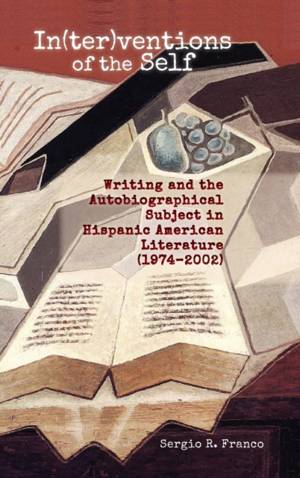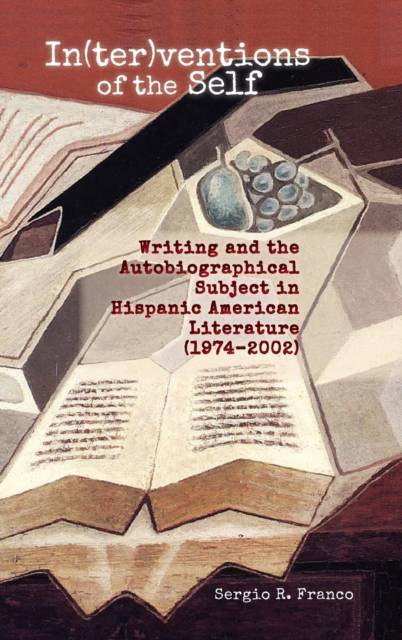
- Retrait gratuit dans votre magasin Club
- 7.000.000 titres dans notre catalogue
- Payer en toute sécurité
- Toujours un magasin près de chez vous
- Retrait gratuit dans votre magasin Club
- 7.000.0000 titres dans notre catalogue
- Payer en toute sécurité
- Toujours un magasin près de chez vous
In(ter)ventions of the Self
Writing and the Autobiographical Subject in Hispanic American Literature (1974-2002)
Sergio FrancoDescription
This book is in the Cambria Latin American Literatures and Cultures Series headed by Román de la Campa, the Edwin B. and Lenore R. Williams Professor Emeritus of Romance Languages at the University of Pennsylvania.
This book is the first to incorporate close readings and analyses of the autobiographical texts of five canonical writers (including three Nobel Prize winners): Gabriel García Márquez, Margo Glantz, Pablo Neruda, Severo Sarduy, and Mario Vargas Llosa. The study's novelty lies in its examination of a corpus that has never before been systematically studied.
In(ter)ventions of the Self focuses on the examination of notions of subjectivity, identity, truth, verisimilitude, race, gender, ideology, image, memory, body, and eroticism as they are represented in the symbolic space of the autobiographical discourse of these authors. The text strives to capture the characteristic traits of these authors' self-representation during the period beginning with the 1974 publication of Pablo Neruda's Confieso que he vivido to 2002, when García Márquez's Vivir para contarla was published. These dates correspond both to the increase in the production of autobiographical texts in Hispanic America as well as to the shift from a modern to a postmodern sensibility. This book thus examines the Hispanic American autobiographical discourse in terms of the invalidation or problematization of the great metanarratives of progress and liberation, the debilitation of the political, the emergence of marginal and marginalized subjectivities, an increased ecological consciousness, the climax of a social trend towards the visual and the spatial, as well as the vindication of intimism and the value of sensitivity and everyday socialities.
This book will be a valuable resource for literary scholars and graduate students specializing in the study of the writers examined, historians and cultural critics studying contemporary Latin America, and specialists in autobiographies and memoirs.
Spécifications
Parties prenantes
- Auteur(s) :
- Editeur:
Contenu
- Nombre de pages :
- 362
- Langue:
- Anglais
Caractéristiques
- EAN:
- 9781621965565
- Date de parution :
- 30-08-21
- Format:
- Livre relié
- Format numérique:
- Genaaid
- Dimensions :
- 152 mm x 229 mm
- Poids :
- 698 g

Les avis
Nous publions uniquement les avis qui respectent les conditions requises. Consultez nos conditions pour les avis.






